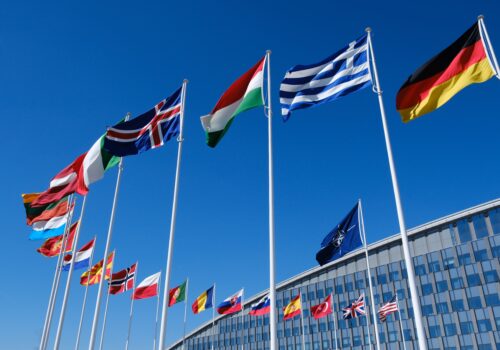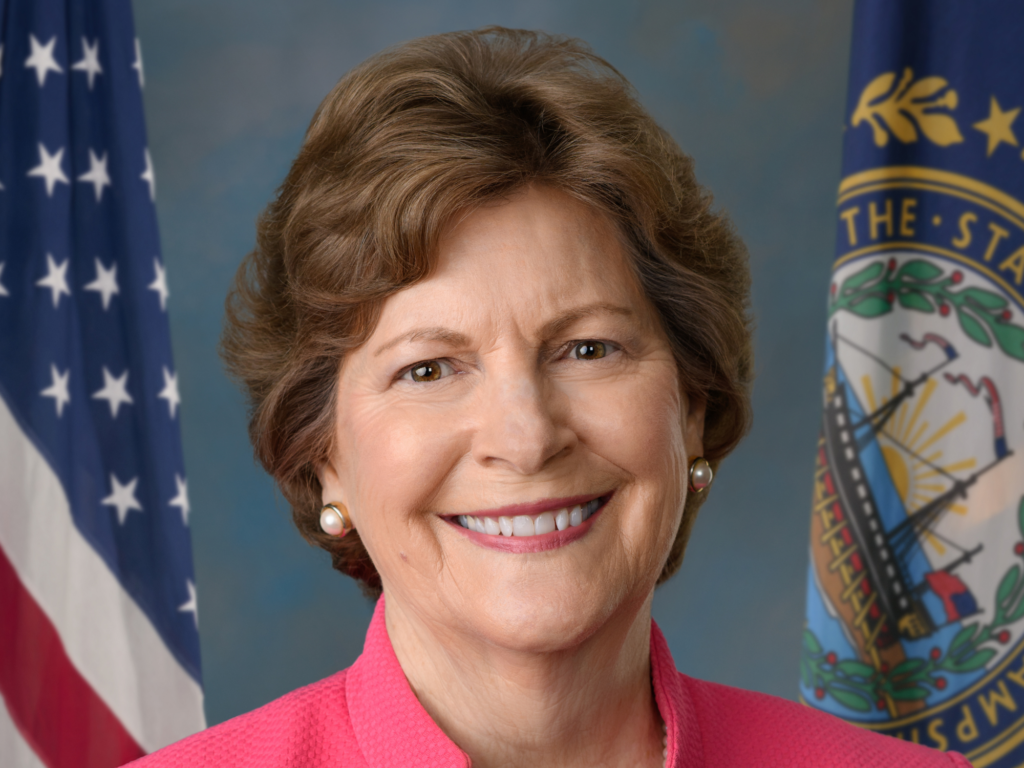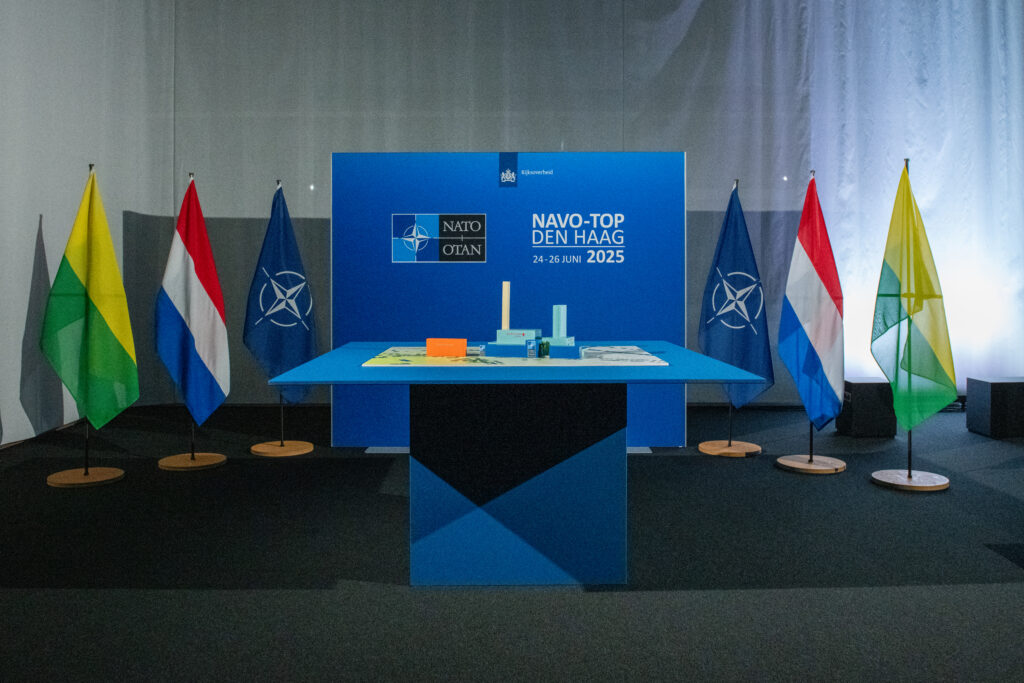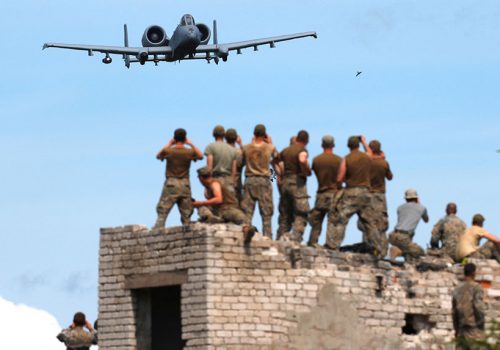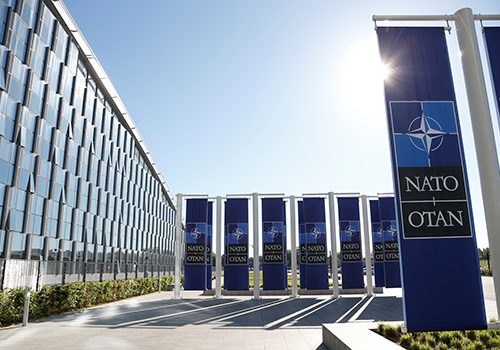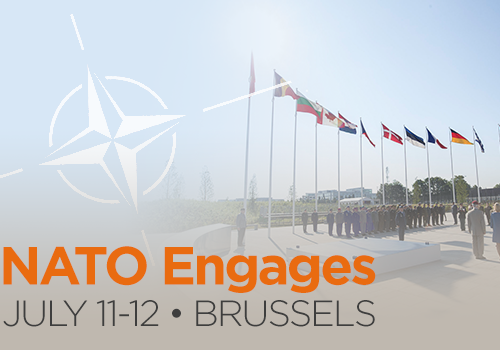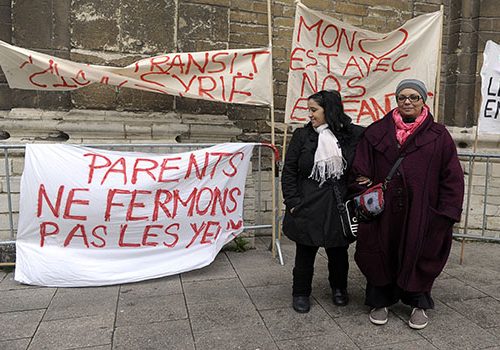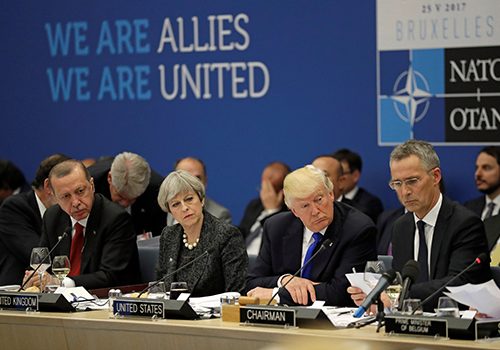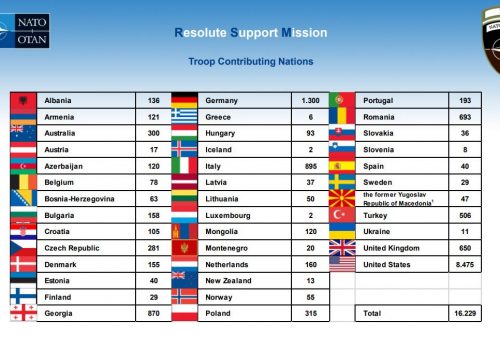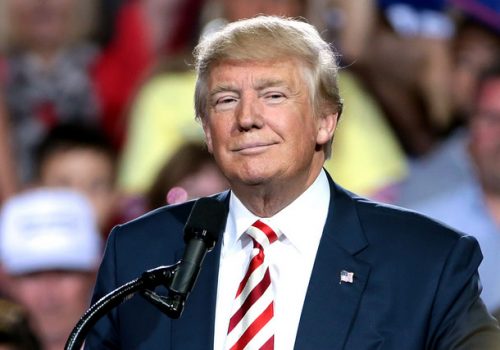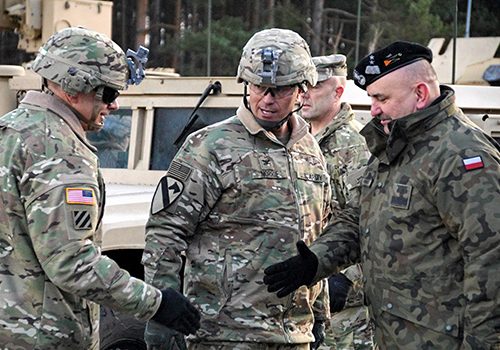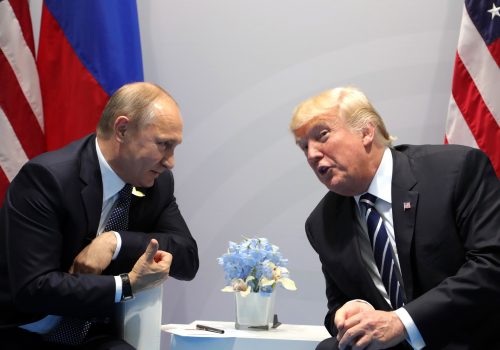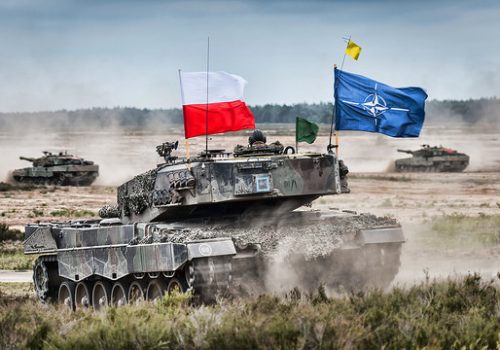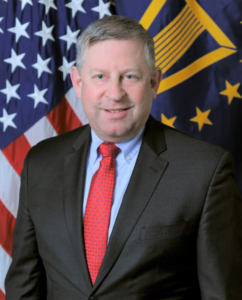TRACKING NATO SPENDING
FEATURED READING
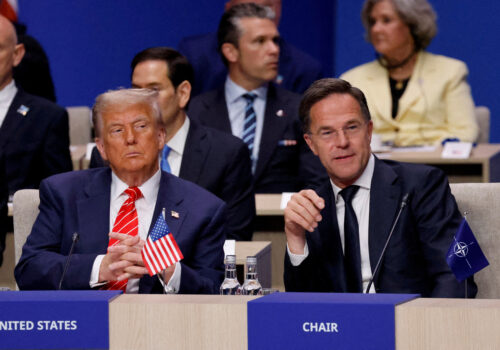
New Atlanticist
Jun 27, 2025
Four fundamental questions the NATO Summit did not answer
By
Torrey Taussig
Over the coming months, NATO allies will have to wrestle with questions about the US commitment to Europe, their shared approach to China, and more.
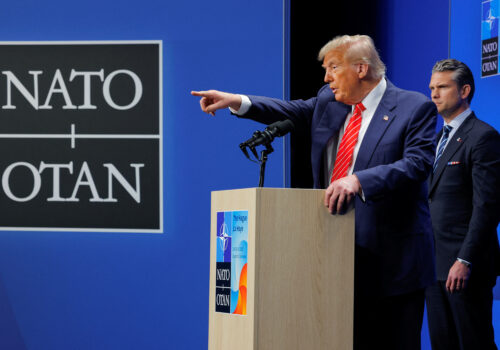
Inflection Points
Jun 26, 2025
Dispatch from The Hague: It’s been Trump’s week in Europe and Iran
By
Frederick Kempe
What connects the recent events in Iran and at the NATO Summit is that they won’t be remembered for the threats countered but rather for the opportunities seized.
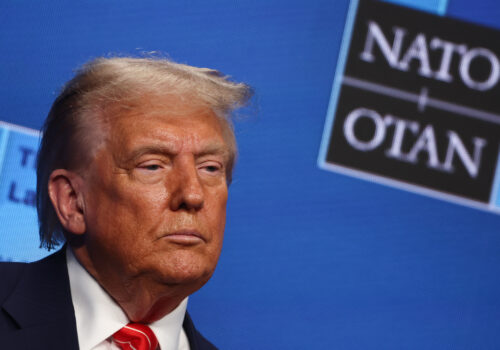
Fast Thinking
Jun 25, 2025
Trump warmed to NATO at The Hague. But what about Ukraine?
By
Atlantic Council
Allies reiterated their commitment to collective defense. But absent from the communiqué was any mention of how Russia’s war against Ukraine should end.
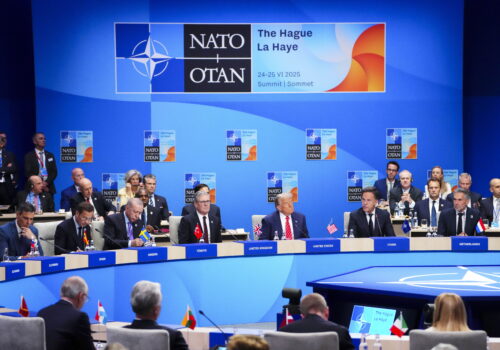
New Atlanticist
Jun 25, 2025
Experts react: NATO allies agreed to a 5 percent defense spending target in a low-drama summit. Now what?
By
Atlantic Council experts
The Alliance summit was notable for what was said and done, especially about defense spending—but also for what was left off the agenda.
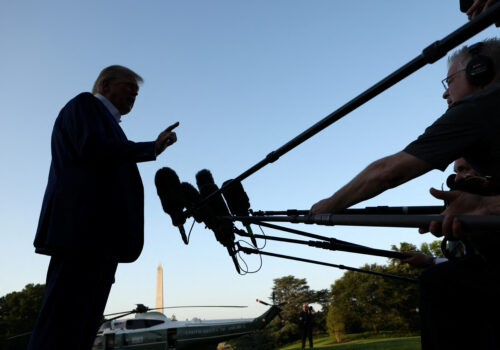
Inflection Points
Jun 24, 2025
Dispatch from The Hague: How Trump can build on his Middle East success with NATO
By
Frederick Kempe
As the Alliance summit begins, the US president can already justifiably trumpet three major achievements in the Middle East. Will he add one more in Europe?
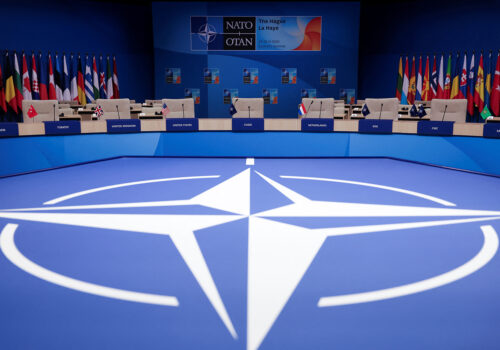
New Atlanticist
Jun 23, 2025
Expect NATO’s new spending pledge to be overshadowed by weakening US commitment and inaction on Ukraine
By
Ian Brzezinski, Ryan Arick
The Hague summit will ultimately be defined by what the US president communicates about his commitment to transatlantic security and what NATO allies do to support Ukraine.
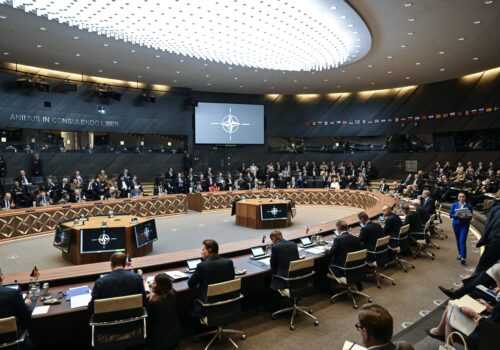
New Atlanticist
Jun 20, 2025
What counts as ‘defense’ in NATO’s potential 5 percent spending goal?
By
John R. Deni, Ryan Arick
The Alliance must ensure that “defense related” items truly contribute to collective defense as it plans its new, larger spending goal.
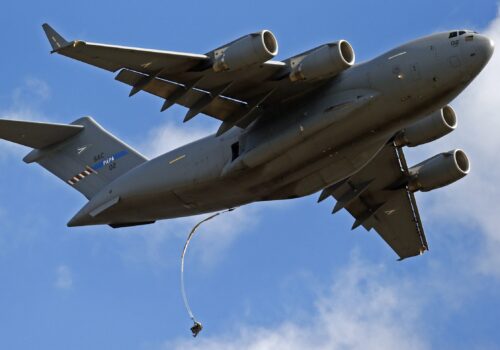
Issue Brief
Jun 5, 2025
Immediate steps that Europe can take to enhance its role in NATO defense
By
Franklin D. Kramer, Kristen Taylor
As NATO members gather in the Hague amid uncertainty about US commitment to the continent and concerns about Russia’s military rebuilding, what can European nations do to deter and, if necessary, defeat threats from Moscow?
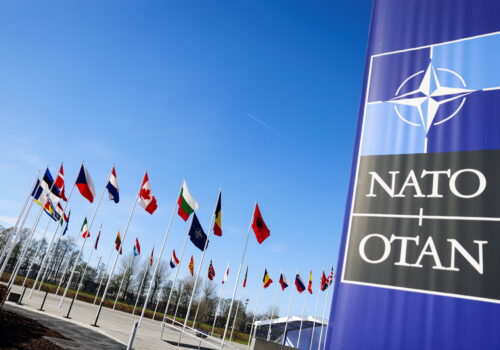
New Atlanticist
Jun 5, 2025
What explains the transatlantic rift? It’s all about threat perception.
By
Jason Davidson
NATO allies’ differing threat perceptions provide the backdrop for what could be a contentious summit in The Hague this month.
FEATURED EVENTS
TUNE IN
Programs and initiatives

The Transatlantic Security Initiative, in the Scowcroft Center for Strategy and Security, shapes and influences the debate on the greatest security challenges facing the North Atlantic Alliance and its key partners.
